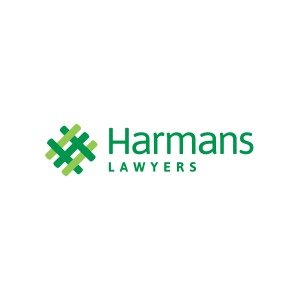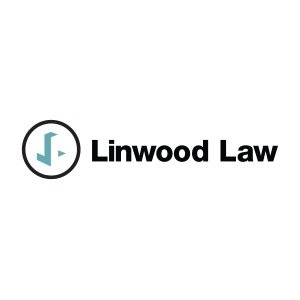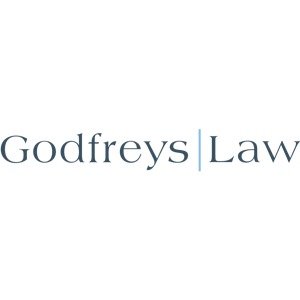Best Commercial Litigation Lawyers in Christchurch
Share your needs with us, get contacted by law firms.
Free. Takes 2 min.
List of the best lawyers in Christchurch, New Zealand
About Commercial Litigation Law in Christchurch, New Zealand
Commercial litigation is the process of resolving business-related disputes through the court system or alternative dispute resolution methods. In Christchurch, commercial litigation encompasses a wide range of issues such as contract disputes, partnership conflicts, shareholder disagreements, debt recovery, intellectual property infringement, construction matters, and more. The legal landscape in New Zealand is shaped by both national and local regulations, and Christchurch, as a key commercial hub in the South Island, often experiences complex business disputes that require specialised legal guidance.
Why You May Need a Lawyer
There are various scenarios in which individuals or businesses in Christchurch may require the assistance of a commercial litigation lawyer. Common situations include:
- Disputes arising from breaches of commercial contracts
- Disagreements between business partners or shareholders
- Claims or defences involving the supply of goods and services
- Debt recovery and insolvency matters
- Resolving employment-related commercial disputes
- Building and construction litigation, including payment and performance conflicts
- Intellectual property, trade mark, or copyright infringements
- Consumer protection issues under the Fair Trading Act or Consumer Guarantees Act
- Defamation or reputation management in a business context
- Disputes about the sale or purchase of a business
Engaging a lawyer can help protect your interests, navigate complex legal processes, and achieve a fair outcome whether through negotiation, mediation, or court proceedings.
Local Laws Overview
Commercial litigation in Christchurch operates within the framework of New Zealand law, primarily governed by statutes such as the Contract and Commercial Law Act 2017, the Companies Act 1993, the Fair Trading Act 1986, and the Consumer Guarantees Act 1993. Christchurch businesses also need to be aware of local court procedures, as the Christchurch High Court and District Court handle most commercial disputes in the region.
Alternative dispute resolution is encouraged in Christchurch and throughout New Zealand, with mediation and arbitration often used as quicker and less expensive alternatives to litigation. Christchurch-based commercial litigators are familiar with both national statutes and local judicial nuances, making their guidance essential for businesses operating in the region.
Frequently Asked Questions
What is commercial litigation?
Commercial litigation refers to legal disputes related to business activities, contracts, partnerships, or companies, typically resolved through negotiation, mediation, arbitration, or court proceedings.
When should I seek legal advice in a commercial dispute?
You should seek legal advice as soon as a dispute arises or is anticipated. Early intervention can prevent escalation, help preserve evidence, and may improve your chances of a favorable outcome.
What is the process for commercial litigation in Christchurch?
Most cases begin with negotiation or mediation. If unresolved, proceedings may be filed in the District Court or High Court. The process involves pleadings, discovery, interlocutory applications, and potentially trial, followed by judgment and enforcement.
How long does a commercial litigation case take?
The duration depends on the complexity of the case and whether parties opt for out-of-court settlement. Straightforward cases may resolve in months, while complex matters can take years.
How much does commercial litigation cost?
Costs vary based on the dispute's nature, duration, legal fees, court expenses, and expert witness fees. Lawyers can provide fee estimates at the outset and discuss funding options.
Can I settle my dispute out of court?
Yes, many commercial disputes are settled through negotiation, mediation, or arbitration. Courts also encourage alternative dispute resolution before proceeding to trial.
What happens if the other party is unwilling to negotiate?
If negotiation or mediation fails, legal action may be necessary. A lawyer can advise on the best strategy and represent your interests in court.
What types of disputes can be resolved through commercial litigation?
Disputes commonly involve contracts, business relationships, property, debt recovery, intellectual property, and consumer protection issues.
Is there a time limit for filing a commercial claim?
Yes, limitation periods apply, typically ranging from six to 15 years for most contractual claims. It is important to get legal advice promptly to avoid missing key deadlines.
Do I have to attend court in person in Christchurch?
Some preliminary hearings and case management conferences can be attended remotely. However, for trials or substantive matters, personal appearance in Christchurch may be required unless the court allows otherwise.
Additional Resources
If you need further information or support related to commercial litigation in Christchurch, the following resources can be helpful:
- Christchurch District Court and High Court
- New Zealand Law Society - Canterbury-Westland Branch
- Community Law Canterbury
- Citizens Advice Bureau Christchurch
- Ministry of Justice New Zealand
- Companies Office New Zealand
- New Zealand Dispute Resolution Centre
Next Steps
If you are facing a commercial dispute in Christchurch, consider the following actions:
- Gather all relevant documents and information about your dispute
- Seek initial legal advice from a specialist in commercial litigation
- Discuss possible outcomes, costs, and alternative dispute resolution methods
- If urgent legal action is needed, your lawyer can help you take immediate steps to protect your interests
- Maintain clear communication with your legal representative throughout the process
Remember, early legal intervention can make a significant difference in resolving commercial disputes efficiently and in your best interests.
Lawzana helps you find the best lawyers and law firms in Christchurch through a curated and pre-screened list of qualified legal professionals. Our platform offers rankings and detailed profiles of attorneys and law firms, allowing you to compare based on practice areas, including Commercial Litigation, experience, and client feedback.
Each profile includes a description of the firm's areas of practice, client reviews, team members and partners, year of establishment, spoken languages, office locations, contact information, social media presence, and any published articles or resources. Most firms on our platform speak English and are experienced in both local and international legal matters.
Get a quote from top-rated law firms in Christchurch, New Zealand — quickly, securely, and without unnecessary hassle.
Disclaimer:
The information provided on this page is for general informational purposes only and does not constitute legal advice. While we strive to ensure the accuracy and relevance of the content, legal information may change over time, and interpretations of the law can vary. You should always consult with a qualified legal professional for advice specific to your situation.
We disclaim all liability for actions taken or not taken based on the content of this page. If you believe any information is incorrect or outdated, please contact us, and we will review and update it where appropriate.

















